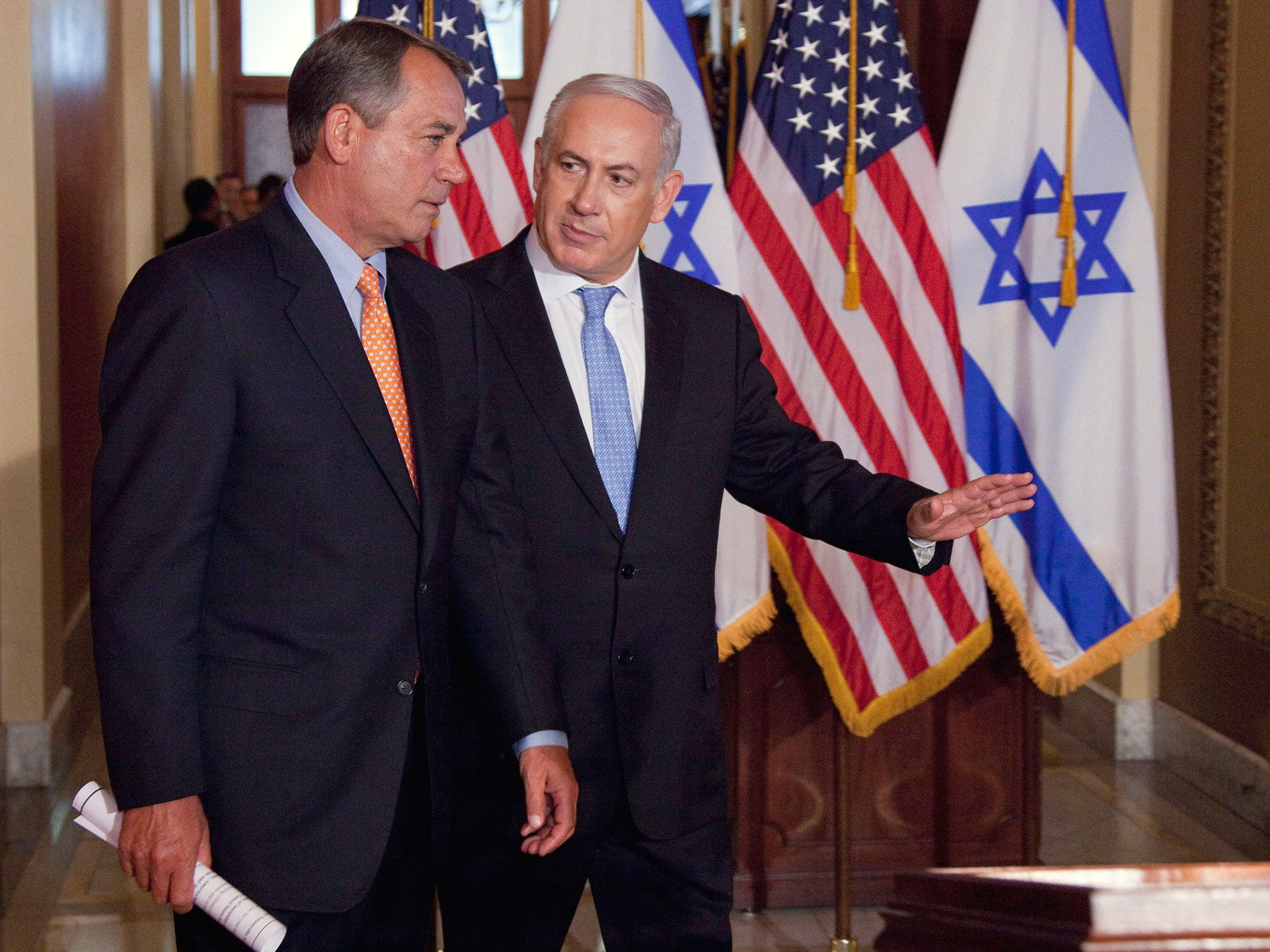Netanyahu accused of putting US-Israeli relationship at risk
Low point comes as Israel is hoping for US support to fight off Palestinian efforts to prosecute Israelis for alleged war crimes

Your support helps us to tell the story
From reproductive rights to climate change to Big Tech, The Independent is on the ground when the story is developing. Whether it's investigating the financials of Elon Musk's pro-Trump PAC or producing our latest documentary, 'The A Word', which shines a light on the American women fighting for reproductive rights, we know how important it is to parse out the facts from the messaging.
At such a critical moment in US history, we need reporters on the ground. Your donation allows us to keep sending journalists to speak to both sides of the story.
The Independent is trusted by Americans across the entire political spectrum. And unlike many other quality news outlets, we choose not to lock Americans out of our reporting and analysis with paywalls. We believe quality journalism should be available to everyone, paid for by those who can afford it.
Your support makes all the difference.Prime Minister Benjamin Netanyahu was accused by political rivals yesterday of damaging Israel’s critical relationship with its American ally, a day after it emerged that President Barack Obama will not meet the Israeli leader when he pays a controversial visit to Washington just before Israel’s general election.
“No doubt his behaviour has caused damage,” said Nachman Shai, a legislator for the Labour Party, which is challenging Mr Netanyahu’s Likud in elections in March. “Relations between Obama and Netanyahu are irreparable,” he added. “I hope this won’t damage things totally but it looks like we now have an ugly period of coldness between leaders and states.”
The apparent low point comes as Israel is hoping for American support to fight off Palestinian efforts to prosecute Israelis for alleged war crimes in the International Criminal Court, Mr Shai said. Israel would also want an American veto in the event of the expected Palestinian revival of a UN Security Council resolution calling for an end to Israeli occupation of the West Bank within three years.
According to media reports, Mr Netanyahu’s envoy in Washington, Ron Dermer, and the US House Speaker, John Boehner, kept the Obama administration in the dark about arrangements for the Israeli leader’s visit to address a joint session of Congress.
Mr Netanyahu is expected to urge legislators to pass fresh sanctions against Iran, a stance the President views as torpedoing any chances of reaching a negotiated settlement over Iran’s nuclear weapons. Mr Obama has vowed to veto any new sanctions.
“There are things you simply don’t do,” a senior US official was quoted as saying in the Haaretz newspaper yesterday. “He spat in our face publicly and that is no way to behave. Netanyahu ought to remember that Obama has a year and a half left in his presidency and that there will be a price.’’
Mr Netanyahu received potentially bad news on another electoral front yesterday, as traditionally fractious Arab parties came together to form a united list, a move that they hope will increase voter turnout among Israel’s Arab minority for the elections, which are expected to be closely fought.
The Arab parties have never been included in a coalition but in the early 1990s they provided Labour Party Prime Minister Yitzhak Rabin with a blocking majority during no- confidence votes.
The new list comprising the Balad, Raam, Ta’al and Hadash parties came about because of necessity: new legislation raised the minimum threshold for entering the Knesset from 2 per cent to 3.25 per cent. Balad, which was doing poorly in the polls, thus faced the prospect of becoming extinct if it did not join.
Balad legislator Haneen Zoabi said it was “a historic achievement”. “Now it is possible to speak of Arab political power in the Knesset.”
Join our commenting forum
Join thought-provoking conversations, follow other Independent readers and see their replies
Comments